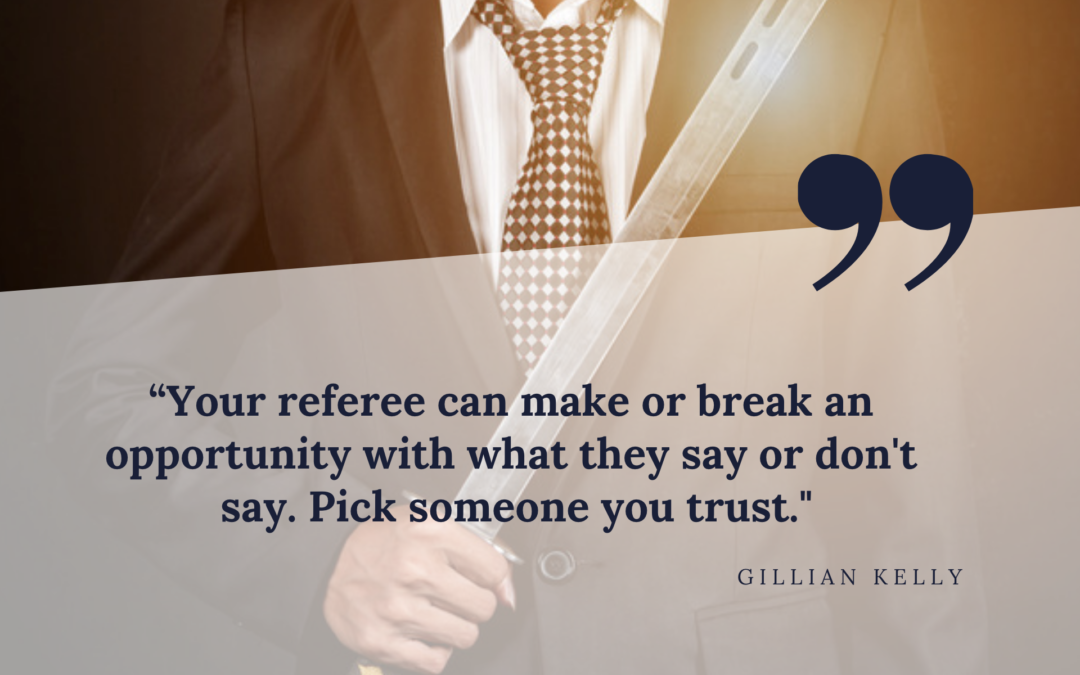You are nailing the interview but never seem to win the job. Could your referee be failing you?
Today most smart hirers will incorporate a referee check as the final part of their screening process. This is their chance to check you out one last time. With a few select questions an organisation can reassure themselves they are making a good hiring decision.
Most hirers ask for two to three referees, ideally from your most recent employers. This usually occurs at the end of the interview process, though may be requested as part of the initial application process. The problem is, how do you choose?
Not everyone makes a good referee.
A good referee will know you well and champion your capability for the role. They are both your final hurdle and greatest asset in persuading an employer to make a job offer. Unfortunately, I have seen a lot of referees become candidate slayers rather than candidate champions.
Not long ago I had a client who kept getting to final interview but never seemed to get across the line with a job offer. Her resume was strong, her interview skills saw her repeatedly get to second and third round interviews. It just never seemed to happen for her. Through a bit of strategic exploration we assessed the issues that could be at play, including her interview responses, negotiation tactics and referees.
When we talked in detail about her referee strategy it turned out one of her referees was a past employer she never really clicked with. She felt obliged to include her as she was her most recent boss but whilst her boss had agreed to be a referee she wasn’t confident in what she might be saying.
If you don’t trust your referee don’t include them.
If in doubt – don’t! It’s not usually worth the risk. When selecting a referee it’s best to leave someone off if:
- Your instincts are telling you that you don’t trust what they would say;
- You had a falling out or personality clash;
- You left under bad terms;
- They hesitate or are reluctant.
Sometimes a reluctant referee will do damage not by what they say, but what they don’t say. Most employers are hesitant to say anything bad about a past employee but recruiters and HR are good at reading between the lines. If a referee is hedging or making vague responses this will ring warning bells.

If you want a great reference, DO YOUR PART.
A referee will be in a much better position to support your chances for a role if they armed with good information.
Before listing someone as a referee:
- Always get their agreement;
- Check their details are up-to-date and what contact approach is best for them;
- Provide them with a copy of the job advertisement and your resume;
- Brief them on any important facts;
- Let them know any aspects of your skills that are pertinent to the role;
- THANK THEM!
If you are making a change and would like help with your transition, contact our Career Agency team.

